Nathan Milstein (EMI Classic Archive 13)
The twentieth century was peppered with violin players who came and went, and were sadly forgotten. Many, for whatever reason, came from a Jewish background in Russia and either stayed there or emigrated to the States. Nathan Milstein was one of the latter.
He began violin lessons when his parents had seen the 11 year old Jascha Heifetz give a concert, and they though the discipline would keep him out of trouble. When he became a pupil of the great teacher and composer Leopold Auer, it was almost certain something special would happen.
Here, the good folks who produce the EMI Classic Archive present us with snippets of music for which Milstein has become justly famous for performing. Admittedly, this 'bleeding chunks' method of playing music can be as annoying as a lifetime sentence listening to Classic FM, however with when it's at this standard, I have no complaints.
The programme begins with a BBC concert filmed in 1957. The sound is somewhat muted, and so things need turning up a lot to get the most out of the music.
The opening Adagio and Rondo seem to fit together perfectly, although both are actually orchestral works written years apart, with the Adagio being a 'replacement' for the A major concerto's slow movement, and the Rondo being a seemingly independent work which may well have been used as a 'replacement' (again) for the final of someone else's concerto.
Either way, this is a great example of Mozart transcriptions being worthwhile repertoire, and with such understanding accompaniments by Ernest Lush, are a good argument for more exposure.
The two Paganini caprices which follow are, even on their own, a good argument for buying this DVD. the performance of No. 5 is one of those anyone who has ever tried to play the violin should watch. over and over again. Milstein makes things look so simple, and the camera angles display his mastering of finger dexterity so well it even makes me want to practise a bit more...just in case something hits home.
The extracts from the Mozart and Brahms concertos are a bit odd, in that it's obvious that is all which was played in the TV broadcast, but as 'completeexcerpts', they are excellent. The cadenza in the Mozart is unfamilar, so I assume it's Milstein's own.
The 'Kreutzer' sonata which follows is disappointing, but only because we are missing out on the central variations. The teamwork between Milstein and his very able accompanist, Georges Pludermacher turn this into a masterclass of this most difficult of Beethoven sonatas.
The French audience also have the privilege of seeing Milstein play the Bach 'Chaconne' live, yet perhaps don't deserve such a superb performance with the subsequent applause being the equivalent of a 'Gallic shrug', but as it's a lot flashier, his own arrangement of Paganini themes is more enthusiastically received.
The final contribution from Milstein is another slice of Bach (and which is attached to the front page of the review as a YouTube item), and shows him at his finest. This performance of the Prelude from the 3rd Partita is justifiably one of the most famous violin excerpts ever, and may explain why many violin players prefer his interpretation of the complete Sonatas and Partitas over anyone else's.
The 'extras' on the DVD contain two short pieces by Fritz Kreisler played by Mischa Elman, accompanied by his long-term musical partner, Joseph Seiger. Elman seems to have been forgotten by modern listeners, but this is a great shame, as despite his peculiar stance and bow hold while playing (mostly because of his short stature), his playing is warm, skilful and very attractive. It's not specified in the booklet on on the disc, but I suspect the two pieces were recorded because Kreisler had just recently died and Elman was a good friend of his (and was one of the few violinist-composers who was also greatly admired by Milstein).
And so, back to Milstein. His style of playing, to me at least, is nonchalant and laid back to the point of being horizontal, but the natural way he pulls the music from the page to the listener is amazing. Unlike Heifetz, there's a warmth and understanding to his playing which puts a smile on your face, not because of almost unnatural 'correctness' to every note that is played, but because it connects immediately to the listener and flows so naturally, it's as if you have known the music your whole life.
Many people remember where they were when they hear of someone's death. I certainly remember when Milstein died (London, 1992), and will always regret that I never saw him play live.
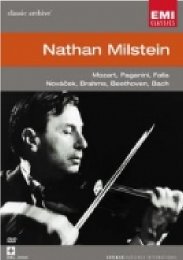
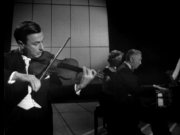
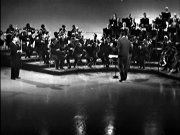
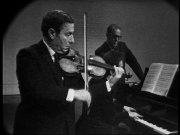
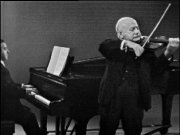
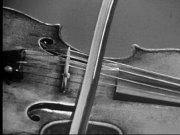
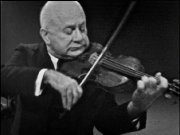
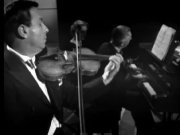
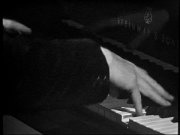
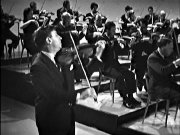



































Your Opinions and Comments
Be the first to post a comment!